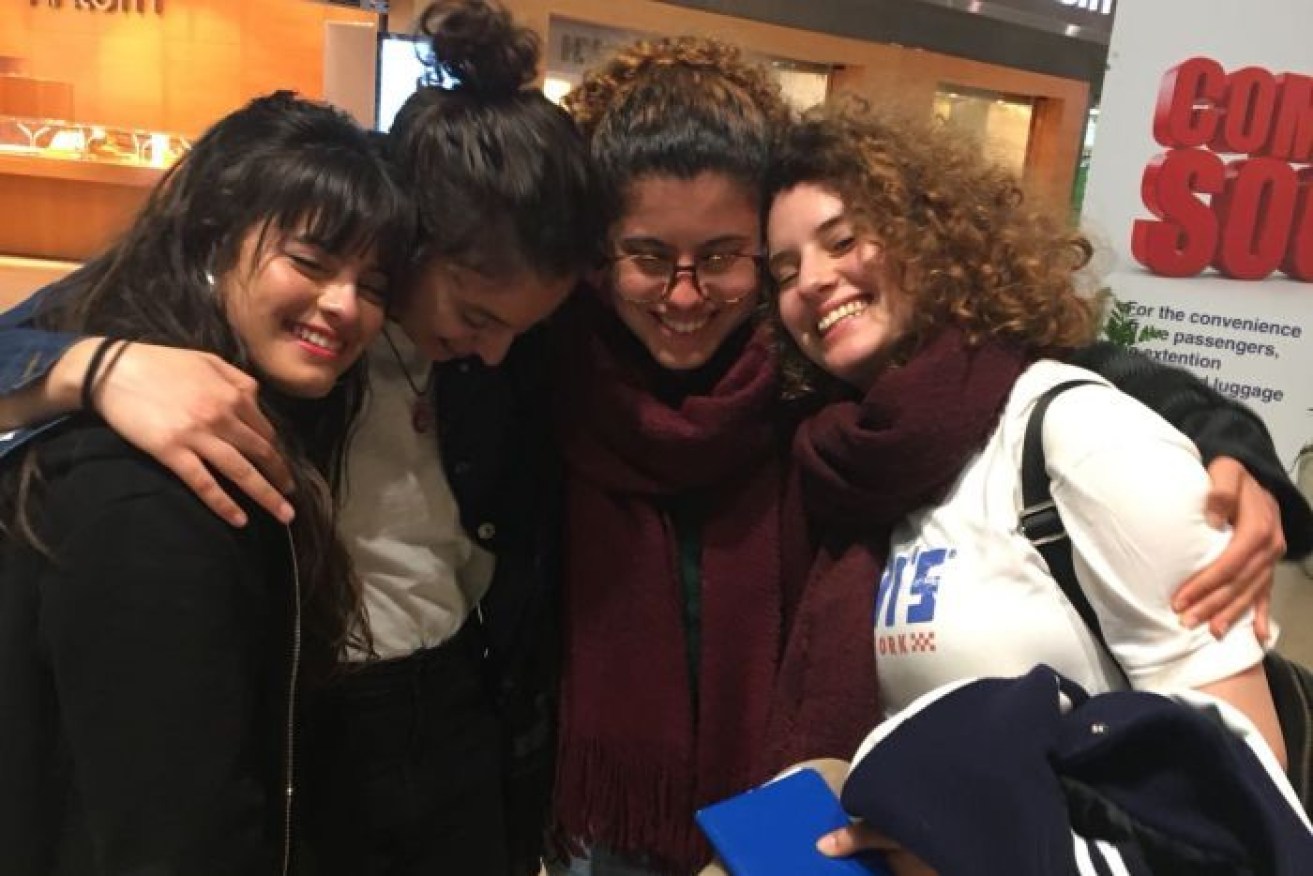Why Aiia Maasarwe’s death made me sad … but not surprised


Aiia Maasarwe (right) was in Melbourne as part of a university exchange program. Photo: Supplied/Facebook
After having enough time on Earth that all my kids are adults and bone density is a thing, truth is I’ve been sexually assaulted and harassed a lot.
There were the six boys in the city who grabbed me as I walked toward them into Myer, the two men in Turkey jabbing at each other with broken bottles before a barman hustled my friend and me out a back door: “They’re fighting over who gets you.”
There was the suited businessman who, in a polite voice, told me on a crowded Melbourne morning tram in 1986: “I’d like to put my big fat c–k between your legs.”
I was so taken aback I asked him to repeat it. I must have misheard. He did, and I hadn’t. The most humiliating part wasn’t that I was seen as just a thing, but that I got off silently at the next stop, face burning at my lack of power.
Nobody on the tram said a word to the man. He probably went home that night to a family or out for drinks with friends who had no idea how loathsome he was beneath his respectable, city veneer.
That incident didn’t really affect me: others did, but it’s stayed in my consciousness above most of the assortment of inappropriate hands, force and comments, mostly because it happened on my way to work.
It was out of context. It wasn’t in a dark corner with sticky carpet and expected weirdness.
My experiences aren’t unusual – I wasn’t particularly alluring even in my salad days. It just comes with the territory of being a woman. How sad is that? Talk to any of us long enough and you’ll hear about everything from bottom pinches at clubs to rapes on overseas ferries.
Now, having lived a bit, I’m at that stage where thinking about everything men have ever done, casually or with real intent, makes me feel tired, resigned, rather than angry or devastated.
Still, at a shade over five foot in the old measurements, I live in a perpetual state of heightened alertness. Most people are taller and heavier. A kid’s running footsteps behind me are intimidating. I box, run, lift weights, can fight my corner verbally, but none of it matters.
If a man wanted to hurt me, he could. And this is not a rant against men, who I love. As Brooke Boney said on Today this week talking about Indigenous education versus the prison population, it’s not a “woe is me” situation: “I’m talking to the statistics.’
If you’re a man, a good perspective on the reality of most women is imagining everyone around you every single day is at least seven feet tall and hefty. You’re at a natural and inescapable disadvantage.
So when news broke that police had found Aiia Maarsarwe’s body in Melbourne on Wednesday, a long way from her family in Israel, I felt sad – but not surprised. And there’s something fundamentally wrong with that.
Her death is one of those which touches a nerve because it was random.
Like Jill Meagher and Eurydice Dixon, she was young, enjoying a night out, when at some point her path intersected with that of a killer.
The normality of it all is what’s devastating, and why Aiia’s death rightfully generated international headlines. Domestic violence behind closed doors has become so everyday that it doesn’t grab public attention, unless the victim is ‘special’ in some way – beautiful or with small children or wealth.
Aiia was on the phone to her sister when she was attacked. Maybe she’d done some online shopping or listened to a podcast on her way home. Usual stuff. And that’s why her death in a public place made us feel vulnerable for ourselves, our sisters, our beautiful daughters.
Like Aiia on her last journey, I catch the route 86 tram most days, rattling along the shopping strips of Fitzroy and Collingwood in Melbourne’s northern suburbs. My girl does too, and we both assume she’ll always come home safely.
The Maasarwe family said they believed that about Aiia’s trip to Australia. That she would be safe. There’s no such thing.








